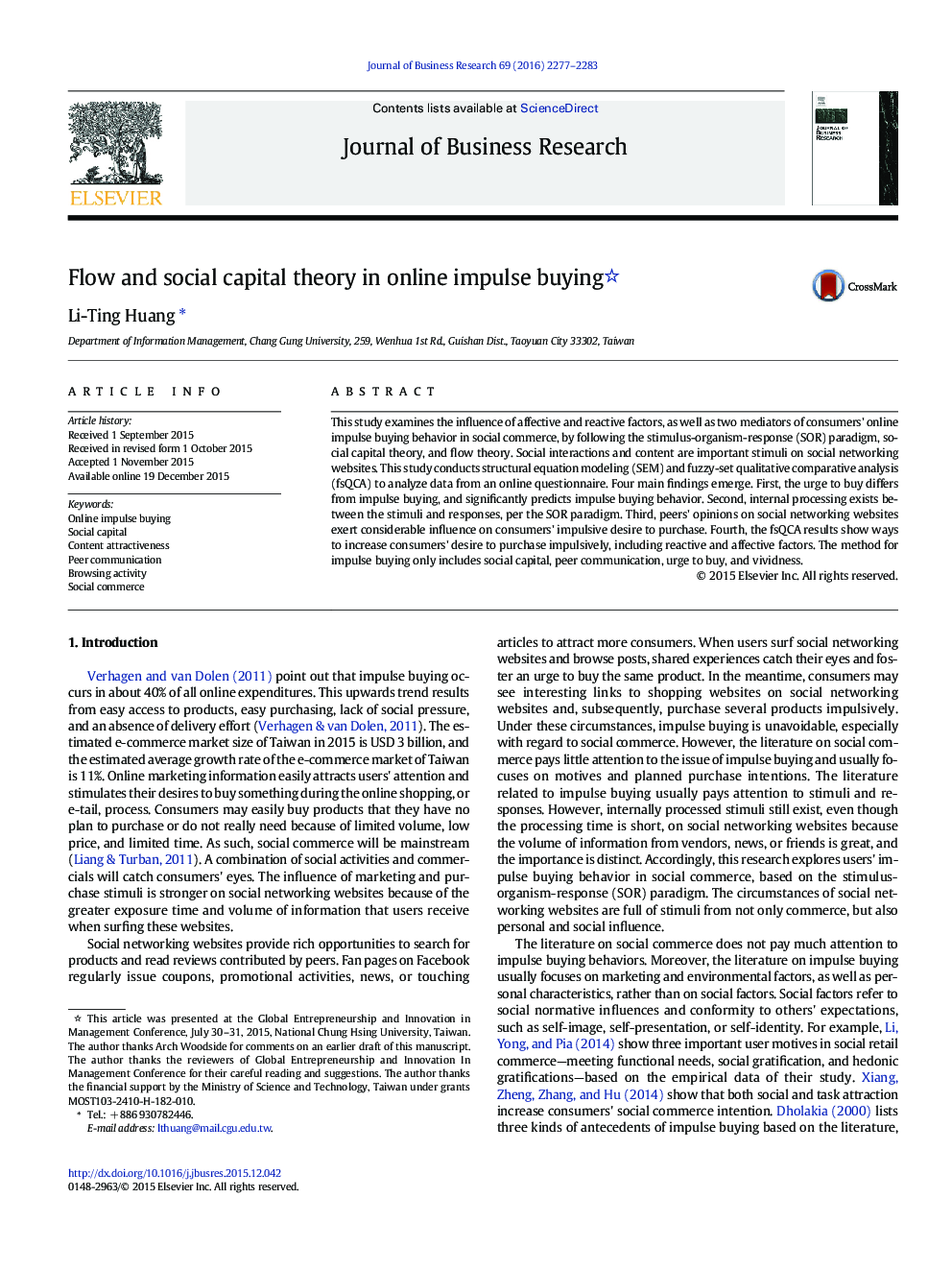| Article ID | Journal | Published Year | Pages | File Type |
|---|---|---|---|---|
| 1016964 | Journal of Business Research | 2016 | 7 Pages |
This study examines the influence of affective and reactive factors, as well as two mediators of consumers' online impulse buying behavior in social commerce, by following the stimulus-organism-response (SOR) paradigm, social capital theory, and flow theory. Social interactions and content are important stimuli on social networking websites. This study conducts structural equation modeling (SEM) and fuzzy-set qualitative comparative analysis (fsQCA) to analyze data from an online questionnaire. Four main findings emerge. First, the urge to buy differs from impulse buying, and significantly predicts impulse buying behavior. Second, internal processing exists between the stimuli and responses, per the SOR paradigm. Third, peers' opinions on social networking websites exert considerable influence on consumers' impulsive desire to purchase. Fourth, the fsQCA results show ways to increase consumers' desire to purchase impulsively, including reactive and affective factors. The method for impulse buying only includes social capital, peer communication, urge to buy, and vividness.
